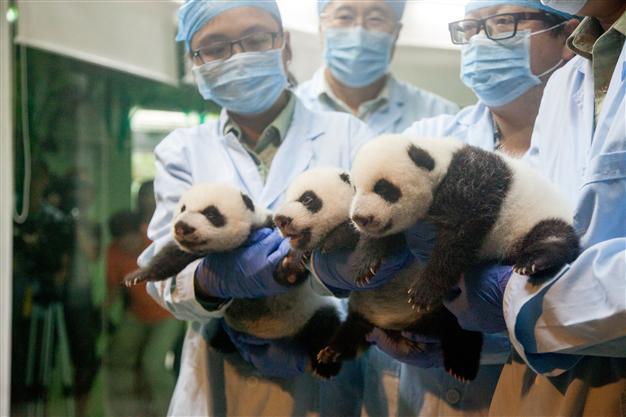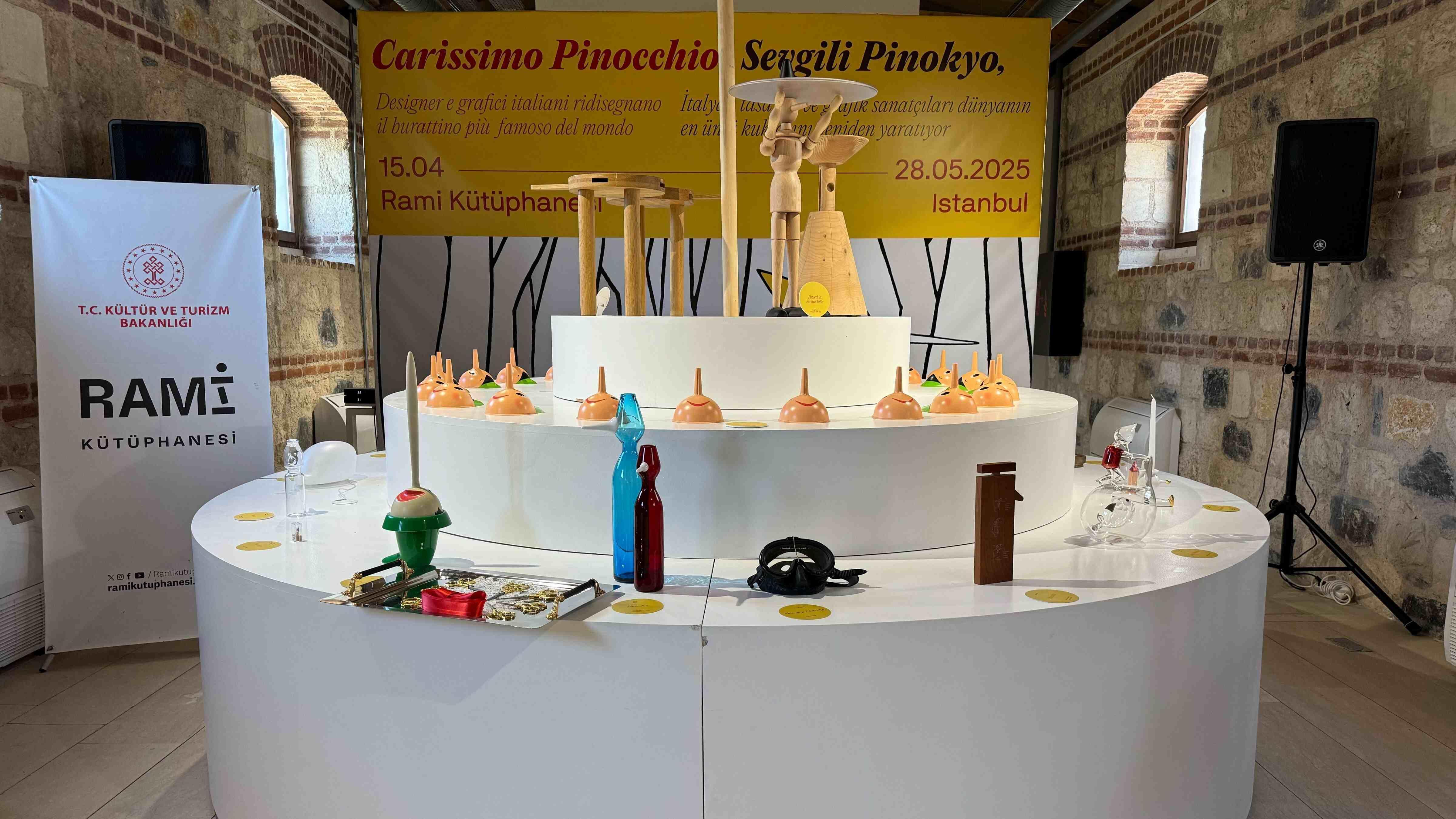'Miracle' panda triplets open their eyes in Chinese zoo
HONG KONG - Agence France-Presse

This picture taken on September 18, 2014 shows newborn panda triplets being shown to the public for the first time after they opened their eyes at Chimelong Safari Park in Guangzhou, south China's Guangdong province. AFP Photo
A set of panda triplets, known as the world's only surviving trio, have opened their eyes for the first time more than a month after their birth in a Chinese zoo.The trio's births at the end of July were hailed as a "miracle" given the animal's famously low reproductive rate.
A video from the zoo showed the three cubs now covered with white and black fur squealing and moving about with their eyes open.
"The panda triplets have all opened their eyes and are in good, healthy condition," Guangzhou's Chimelong Safari Park said in a statement Thursday.
The second panda to be born was the first to open their eyes, followed by the lastborn and then the firstborn.
The cubs, the size of a small dog, weighed from 2,678 to 2,886 grams (5.9 to 6.3 pounds), the statement said.
"Each one is starting to show its own individuality. For example, the third one is the most lively," it said, adding that the cubs are now living in wooden boxes.
The cubs' next stage in development will be to start walking, the statement continued.
The zoo also has said that a naming competition is already underway and will end in mid-October.
The gender of the cubs cannot be determined until they grow older.
The mother panda, named Juxiao, meaning "chrysanthemum smile", delivered the triplets at Guangzhou's Chimelong Safari Park in the early hours of July 29.
A video showed Juxiao sitting in the corner of a room as she delivered her cubs for four gruelling hours and licking them after they were born. By the time it came to the delivery of the third cub, she was lying on her side in exhaustion.
The first known case of triplets from a giant panda was recorded in 1999, when a 15-year-old mother gave birth following artificial insemination in the southwestern Chinese city of Chengdu.
However the youngest of the trio died after living for just three days because of a bladder disorder.
Pandas, whose natural habitat lies in mountainous southwestern China, have a notoriously low reproductive rate and are under pressure from factors such as habitat loss. China has about 1,600 pandas living in the wild.
Their normal breeding season is mid-April to May.
















